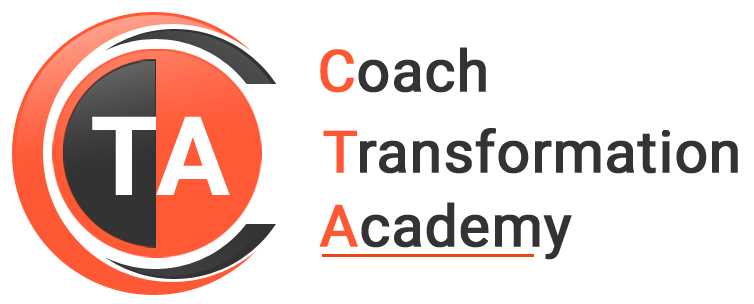
Leadership Confidence & Whole Life Coach, ICF Certified Mentor Coach
Lyssa deHart, LICSW, MCC, author of StoryJacking: Change Your Dialogue, Transform Your Life, is a Leadership Confidence and Whole Life Coach. Lyssa works with confidence challenged high achievers who are ready to rewrite the internal narratives that slow them down. Her clients include executives, senior leadership, and managers at organizations such as Amazon, Boeing, Microsoft, the US Military, as well as with creative writers, actors, and artists.
Lyssa is also an ICF Certified Mentor Coach and course leader with inviteCHANGE. She uses her understanding of the ICF Core Competencies, combined with her knowledge of Neuroscience, to work with Professional Coaches. Supporting them to use the competencies to inform their questions and to deepen their coaching confidence so that they have ease in drawing out their client’s genius.
Her passion is to support people to trust their brilliance and develop the courage and confidence to believe in themselves and the work that is their purpose.
“I am a collaborative truth-teller and thought partner who forms deep relationships that support my clients to grow past their limiting narratives so that they can confidently excel at life, love, work, and craft a story worth living.
Keynotes:
Building Foundation on Trust & Safety in a Coaching Conversation.
This Tuesday, Lyssa shared a few intriguing facts and tips on “Building Foundation on Trust & Safety in a Coaching Conversation.” Together we explored trusting the client and inviting the client to lead the coach through the landscape of their experience.
Overview
Without trust and safety, the opportunity for vulnerability, self-exploration, and deep insight is lost. One might say the entire coaching relationship lives on the foundation of Trust & Safety. Not surprisingly, it’s crucial to create rapport and a safe space where clients feel comfortable to dive below the surface. Getting to the underlying issues requires a deeply trusting relationship.
We discussed:
- The ICF Definition of Cultivates Trust & Safety
- What is Full Partnership
- Psychological Safety
- How our blind spots break trust
- Explore questions that build trust and safety
- Connecting Trust & Safety to other ICF Core Coaching Competencies.
“Trust is the glue of life. It’s the most essential ingredient in effective communication. It’s the foundational principle that holds all relationships.” – Stephen R. Covey.
Here are the Keynotes from our webinar:
Cultivates Trust & Safety
As defined by ICF, the definition of Trust & Safety:
Partners with the client to create a safe, supportive environment that allows the client to share freely. Maintains a relationship of mutual respect and trust.
The PCC Markers
- PCC Markers are incredibly useful for understanding the behavioral indicators that cultivate trust and safety.
- These are the markers that a Coach Assessor would be looking for in your coaching conversations around Cultivates Trust & Safety.
Indicators of Trust & Safety
- Our ability to manage our emotional state is important.
- Trust & Safety is woven throughout the other competencies.
What is Full Partnership?
- In coaching, there are 3 ego states: Expert, Adult, or Equal Novice. One way of cultivating them in our coaching relationships is following from Adult to Adult (peer to peer) and not from Expert to Novice. We’re not in the role of telling our clients what they’re supposed to do.
- This partnership is really the growth edge for most coaches. It creates psychological safety for clients.
- A client leads the coach to their internal landscape.
- Explore and ask your client for directions – what do you want to lead to? This gives you touchpoints to the client’s map.
- Notice emotional words and energy shifts – asking the client about their own internal experience
- Unhook from the outcome – Our job is to hold the space so that our clients can explore what they need and get the choice on what’s important to them.
- Savor wins and insights – our clients often have powerful insights and awareness when they have coaching conversations. And we many times miss noticing these insights, which ultimately breaks the trust.
- Trust that your client is fully capable – The client feels ‘never fully being heard, acknowledged or in full partnership.’
- The more we notice these things and ask about them with curiosity and intention (supportive of the client’s goal), the more the client feels heard, acknowledged, and appreciated.
- We lose accountability when someone jumps into the conversation to tell us what to do. And lose our sense of empowered agency.
We believe what we tell ourselves
- For coaches, it’s really important to start to allow our clients to notice their insights and awareness. The biggest gift a client can give you (which they give us all the time) is asking a really powerful question. For example, the question a client asks, what is keeping me in this pattern?
Psychological Safety
- Flight, fight, freeze, or freakout is often what we feel when we feel judged.
- Psychological safety is important to have an open mind. Open mind here is a creative mind, capable of thinking of different solutions and ways of looking at the situation.
- In a flight or fright situation, we don’t have access to that part of our mind, the ability to think through things.
- So, how do we approach our clients and make that space safer to explore?
How our blind spots break trust
- Telling vs. asking
- Leading a client vs. being led
- We see the direction that we think the client should be going. We lead them instead of allowing them to lead themselves.
- All questions lead to some degree.
- Thinking we know what is right for the client.
- Assuming we know the meaning, context, etc.
- Getting hooked by the situation.
- Believing it’s our job to solve, fix, or make the situation better for the client.
Entrust
- Explore
- Notice
- Transfer
- Reflect
- Unhook
- Savor
- Trust
- We don’t have to understand the meaning they’re making. Sometimes they’re not able to fully express themselves. Yet, it’s our job to hear that connection. Asking questions supports them to awareness and clarity.
- When in doubt, entrust yourself to be led.
Tips from Lyssa
- Transfer power and learn from your clients – giving them empowerment and allowing ourselves in the space of learning. The client is the expert in their own lives, and we are the novice.
- Reflect on your client’s genius – we rarely stop and notice the genius of our client.
- We’re so busy thinking about the next question that shows up in our minds instead of stopping and inviting them to name what showed up. Allow them to self-reflect on their own awareness.
- As a coach, I’m a short-term solution to a long-term life. My idea of what my client should do is not going to impact my life at all. It will continue to impact the lives of my client.
- For coaches, it’s really important to start to allow their clients to notice their insights and awareness. The biggest gift a client can give you (which they give us all the time) is asking a really powerful question. For example, the question a client asks, what is keeping me in this pattern?
- If you don’t like the question, let me know. Sometimes, our clients suggest better questions. And they let you know what is the question that they need to answer. That way you get a deeper, richer conversation.
- How we ask questions and pay attention in the conversation, influences the speed at which the client feels trust in us, themselves, and the coaching.
A big shout to Lyssa deHart for sharing her experiences, and insights with us on one of the most important coaching competencies! Watch the entire video now to know more on coaching responses, ENTRUST analogy, an informational Q&A, and more!
Subscribe to our YouTube Channel to level up your coaching skills and get insights from coaches all around the world.
Stay tuned for more episodes!




